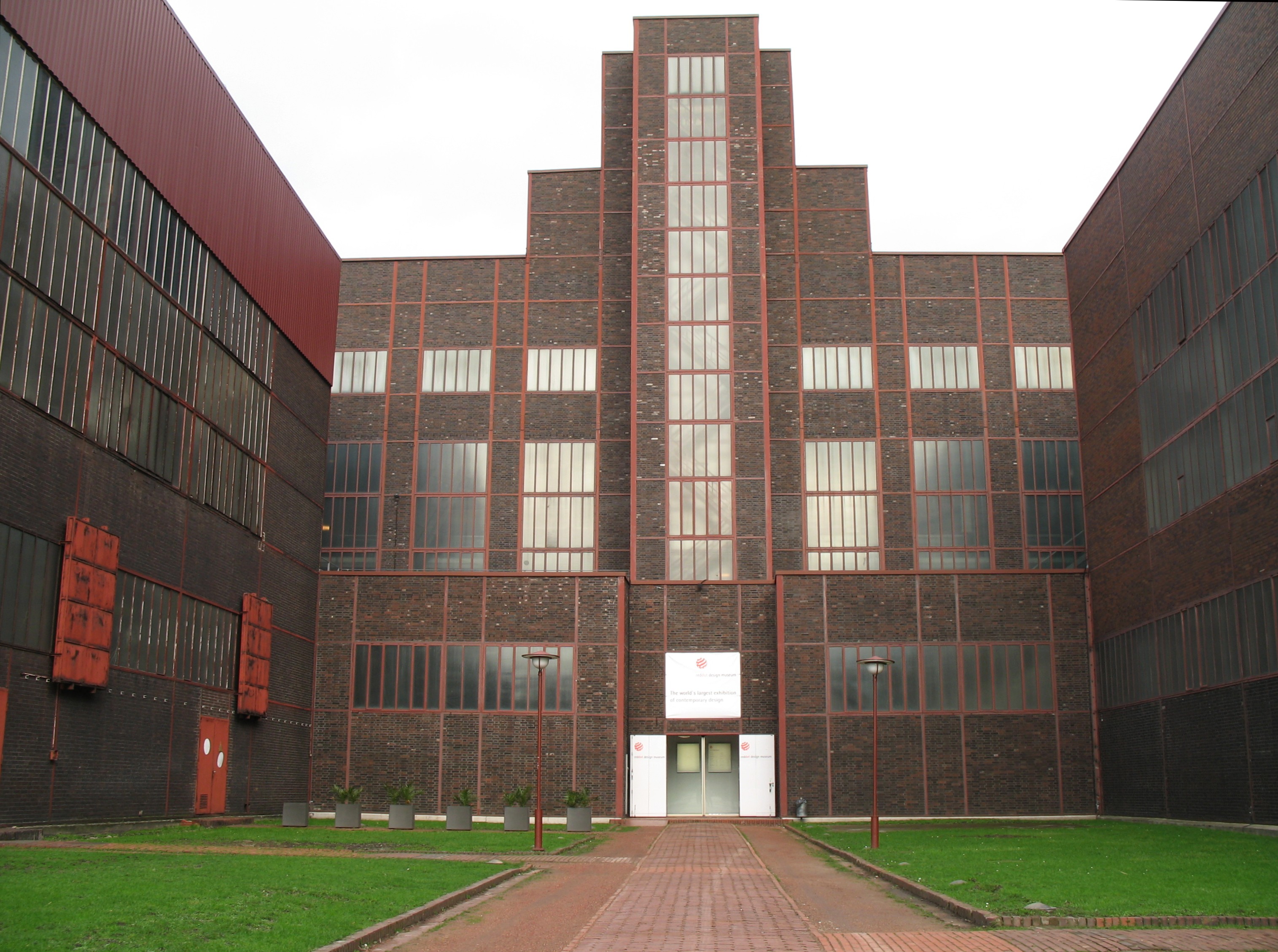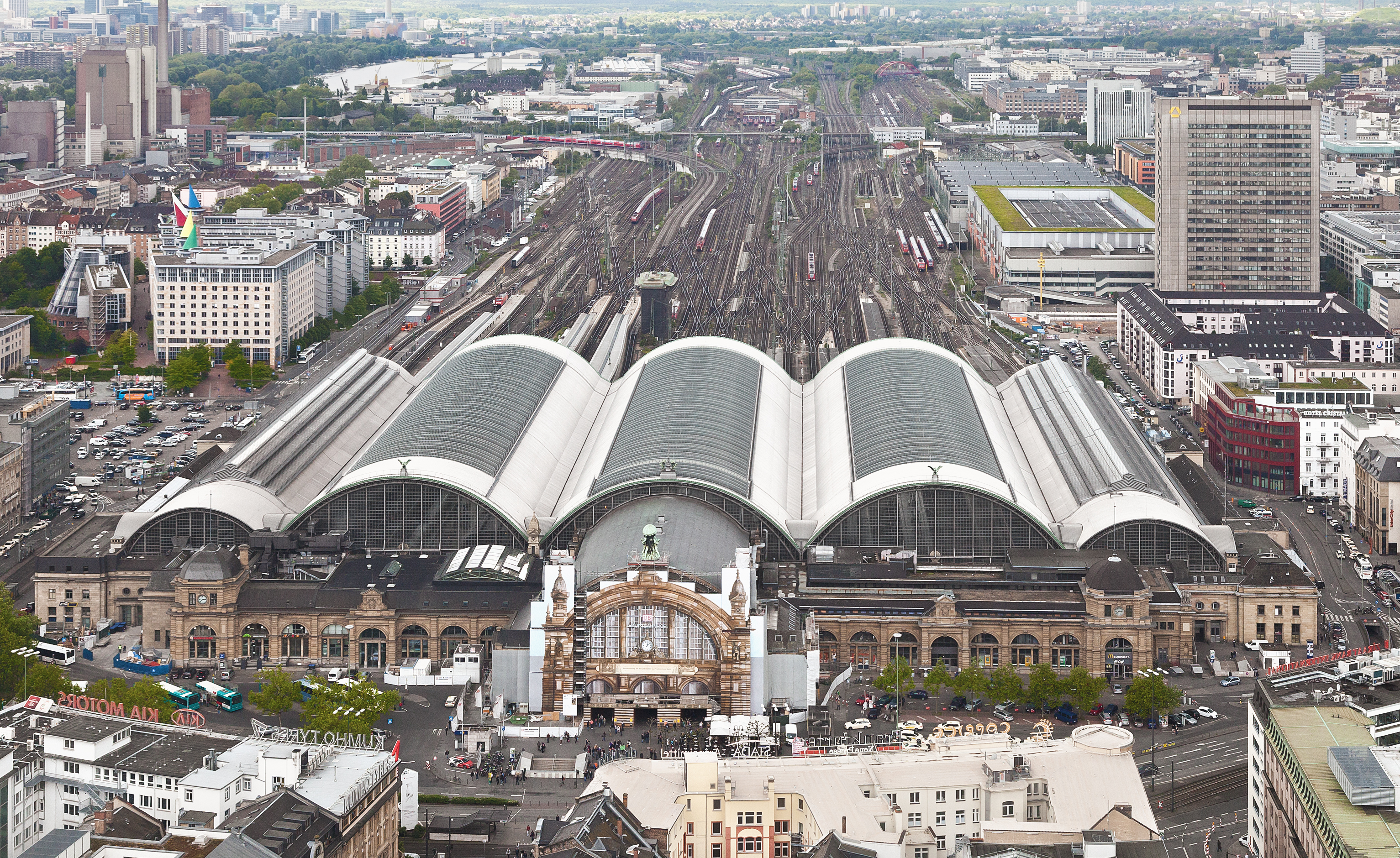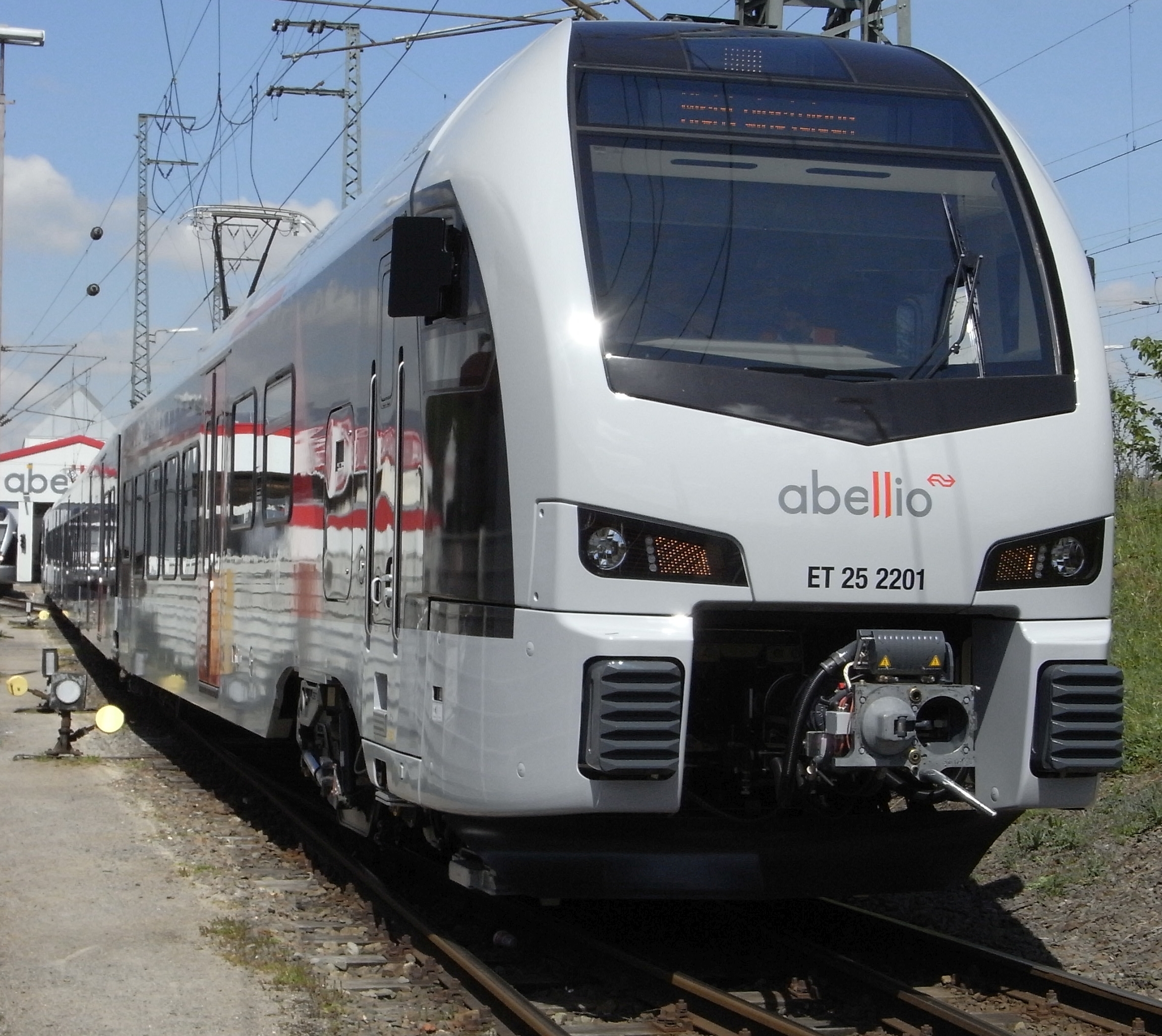|
Essen-Zollverein Nord Station
Essen Zollverein Nord is a railway station situated in close proximity to the Zollverein Coal Mine Industrial Complex on the Duisburg–Dortmund railway situated in Essen in the German state of North Rhine-Westphalia. It is classified by Deutsche Bahn as a category 6 station. It was originally named ''Zollverein'', renamed ''Caternberg'' in 1897, ''Caternberg Süd'' between 1897 and 1905, ''Katernberg Süd'' between 1905 and 1912, ''Essen-Katernberg Süd'' in 1949 and ''Essen-Zollverein Nord'' on 13 December 2009. A station building was built in 1897, but was demolished between 1960 and 1990. It is served by Regionalbahn lines RB32 ( Rhein-Emscher-Bahn) and RB35 (Emscher-Niederrhein-Bahn The Emscher-Niederrhein-Bahn (RB 35) is a Regionalbahn service in the German state of North Rhine-Westphalia. It runs hourly between Gelsenkirchen and Duisburg with Mönchengladbach. Its name refers to the Emscher river (which runs near Dui ...), Essen tramway 107 (Gelsenkirchen Hbf + ... [...More Info...] [...Related Items...] OR: [Wikipedia] [Google] [Baidu] |
Essen
Essen (; Latin: ''Assindia'') is the central and, after Dortmund, second-largest city of the Ruhr, the largest urban area in Germany. Its population of makes it the fourth-largest city of North Rhine-Westphalia after Cologne, Düsseldorf and Dortmund, as well as the ninth-largest city of Germany. Essen lies in the larger Rhine-Ruhr Metropolitan Region and is part of the cultural area of Rhineland. Because of its central location in the Ruhr, Essen is often regarded as the Ruhr's "secret capital". Two rivers flow through the city: in the north, the Emscher, the Ruhr area's central river, and in the south, the Ruhr River, which is dammed in Essen to form the Lake Baldeney (''Baldeneysee'') and Lake Kettwig (''Kettwiger See'') reservoirs. The central and northern boroughs of Essen historically belong to the Low German ( Westphalian) language area, and the south of the city to the Low Franconian ( Bergish) area (closely related to Dutch). Essen is seat to several of the region's ... [...More Info...] [...Related Items...] OR: [Wikipedia] [Google] [Baidu] |
North Rhine-Westphalia
North Rhine-Westphalia (german: Nordrhein-Westfalen, ; li, Noordrien-Wesfale ; nds, Noordrhien-Westfalen; ksh, Noodrhing-Wäßßfaale), commonly shortened to NRW (), is a States of Germany, state (''Land'') in Western Germany. With more than 18 million inhabitants, it is the List of German states by population, most populous state of Germany. Apart from the city-states, it is also the List of German states by population density, most densely populated state in Germany. Covering an area of , it is the List of German states by area, fourth-largest German state by size. North Rhine-Westphalia features 30 of the 81 German municipalities with over 100,000 inhabitants, including Cologne (over 1 million), the state capital Düsseldorf, Dortmund and Essen (all about 600,000 inhabitants) and other cities predominantly located in the Rhine-Ruhr metropolitan area, the largest urban area in Germany and the fourth-largest on the European continent. The location of the Rhine-Ruhr at the h ... [...More Info...] [...Related Items...] OR: [Wikipedia] [Google] [Baidu] |
Deutsche Bahn
The (; abbreviated as DB or DB AG) is the national railway company of Germany. Headquartered in the Bahntower in Berlin, it is a joint-stock company ( AG). The Federal Republic of Germany is its single shareholder. describes itself as the second-largest transport company in the world, after the German postal and logistics company / DHL, and is the largest railway operator and infrastructure owner in Europe. Deutsche Bahn was the largest railway company in the world by revenue in 2015; in 2019, DB Passenger transport companies carried around 4.8 billion passengers, and DB logistics companies transported approximately 232 million tons of goods in rail freight transport. The group is divided into several companies, including ''DB Fernverkehr'' (long-distance passenger), '' DB Regio'' (local passenger services) and ''DB Cargo'' (rail freight). The Group subsidiary ''DB Netz'' also operates large parts of the German railway infrastructure, making it the largest rail network in ... [...More Info...] [...Related Items...] OR: [Wikipedia] [Google] [Baidu] |
DB Netz
DB Netz AG is a major subsidiary of Deutsche Bahn that owns and operates a majority of the German railway system (2019: 33,291 km). It is one of the largest railway infrastructure manager by length and transport volume of its network. The company was established in the course of the second stage of the German rail reform as a subsidiary of Deutsche Bahn AG. DB Netz is headquartered in Frankfurt and it has seven regional divisions ("Regionalbereiche", RB) and a central division. The locations of its regional headquarters are Berlin (RB east), Frankfurt (RB central), Duisburg (RB west), Hanover (RB north), Karlsruhe (RB southwest), Leipzig (RB southeast) and Munich (RB south). DB Netz AG is profitable from route fees but receives extensive public funding for maintaining, developing and extending the network of European and federal transportation routes. It was included in the brand DB Netze when Deutsche Bahn was reorganised into three major divisions covering passengers, l ... [...More Info...] [...Related Items...] OR: [Wikipedia] [Google] [Baidu] |
DB Station&Service
DB Station&Service AG is a subsidiary of Deutsche Bahn, responsible for managing over 5,400 train station A train station, railway station, railroad station or depot is a railway facility where trains stop to load or unload passengers, freight or both. It generally consists of at least one platform, one track and a station building providing suc ...s on the German railway network. References External links * Deutsche Bahn Companies based in Berlin 1999 establishments in Germany {{Germany-rail-transport-stub ... [...More Info...] [...Related Items...] OR: [Wikipedia] [Google] [Baidu] |
Verkehrsverbund Rhein-Ruhr
The Verkehrsverbund Rhein-Ruhr (), abbreviated VRR, is a public transport association (Verkehrsverbund) in the German state of North Rhine-Westphalia. It covers most of the Ruhr area, as well as neighbouring parts of the Lower Rhine region, including Düsseldorf and thus large parts of the Rhine-Ruhr conurbation. It was founded on 1 January 1980, and is Europe’s largest body of such kind, covering an area of some with more than 7.8 million inhabitants, spanning as far as Dorsten in the north, Dortmund in the east, Langenfeld in the south, and Mönchengladbach and the Dutch border in the west. Structure and responsibilities The VRR is tasked with coordinating public transport in its area. This means the following: * setting and developing the fare system (“VRR-Tarif”) ** redistributing ticket revenue onto the transport companies * coordinating local train services (''Schienenpersonennahverkehr'', SPNV) within its area as public service obligations (PSO) * integrating the ... [...More Info...] [...Related Items...] OR: [Wikipedia] [Google] [Baidu] |
Zollverein Coal Mine Industrial Complex
The Zollverein Coal Mine Industrial Complex (German Zeche Zollverein) is a large former industrial site in the city of Essen, North Rhine-Westphalia, Germany. The first coal mine on the premises was founded in 1847, and mining activities took place from 1851 until December 23, 1986. For decades, starting in the late 1950s, the two parts of the site, ''Zollverein Coal Mine'' and ''Zollverein Coking Plant'' (erected 1957−1961, closed on June 30, 1993), ranked among the largest of their kinds in Europe. Shaft 12, built in the New Objectivity style, was opened in 1932 and is considered an architectural and technical masterpiece, earning it a reputation as the "most beautiful coal mine in the world". Because of its architecture and testimony to the development of heavy industry in Europe, the industrial complex was inscribed on the UNESCO World Heritage List on December 14, 2001, and is one of the anchor points of the European Route of Industrial Heritage. History 1847–1890 Zollve ... [...More Info...] [...Related Items...] OR: [Wikipedia] [Google] [Baidu] |
German Railway Station Categories
The approximately 5,400 railway stations in Germany that are owned and operated by the Deutsche Bahn subsidiary DB Station&Service are divided into seven categories, denoting the service level available at the station. This categorisation influences the amount of money railway companies need to pay to DB Station&Service for using the facilities at the stations. Categories Category 1 The 21 stations in Category 1 are considered traffic hubs. They are permanently staffed and carry all sorts of railway-related facilities, as well as usually featuring a shopping mall in the station. Most of these stations are the central (commonly referred to as main) stations (''Hauptbahnhof'' or ''Hbf'') of large cities with 500,000 inhabitants and above, though some in smaller cities, such as Karlsruhe Hauptbahnhof, are regarded as important because they are at the junction of important railway lines. Berlin, Hamburg, Munich and Cologne, the four biggest cities in Germany, have more than ... [...More Info...] [...Related Items...] OR: [Wikipedia] [Google] [Baidu] |
Emscher-Niederrhein-Bahn
The Emscher-Niederrhein-Bahn (RB 35) is a Regionalbahn service in the German state of North Rhine-Westphalia. It runs hourly between Gelsenkirchen and Duisburg with Mönchengladbach. Its name refers to the Emscher river (which runs near Duisburg and Gelsenkirchen) and the Lower Rhine (which the service crosses between Duisburg-Hochfeld Süd and Rheinhausen-Ost). History Before 2016, there was already a service numbered as RB 35, operating under the name of ''Der Weseler''. It ran mainly between Wesel and Duisburg Hbf and was extended during the peak hour from Duisburg to Düsseldorf and once a day to Cologne, as well as from Wesel to Emmerich and it thus functioned to relieve the Rhein-Express (RE 5). From the timetable change of 2016, the route was extended beyond Duisburg to Mönchengladbach, which complemented the northern section of the Rhein-Niers-Bahn. The RE 5 was shortened to run on the Wesel–Duisburg–Düsseldorf–Köln–Bonn–Koblenz sectio ... [...More Info...] [...Related Items...] OR: [Wikipedia] [Google] [Baidu] |
.jpg)




